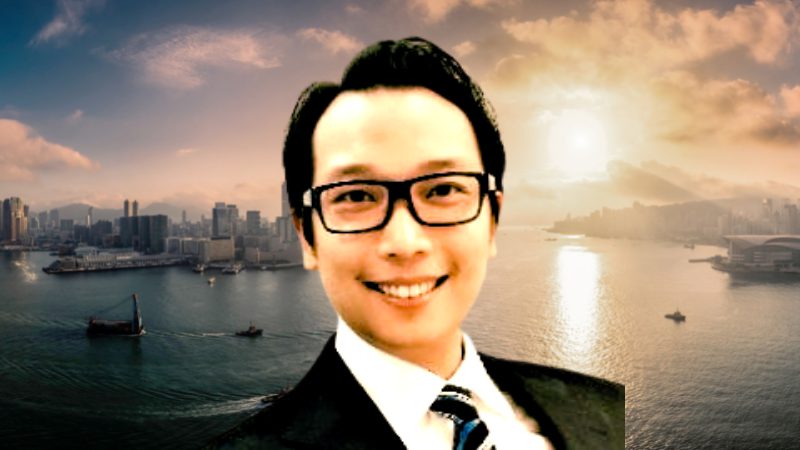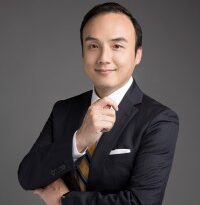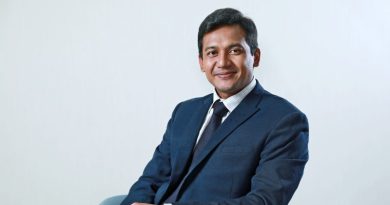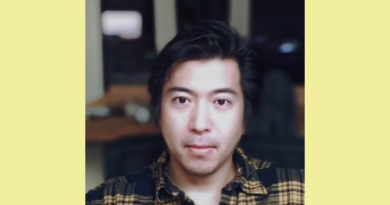Barry Lau: “Tech is not just a fad but a way of life”
Alternative investment veteran Barry Lau in Hong Kong talks about his new tech fund, a JV with Ping An Capital.
Barry Lau is the CIO of alternative investment manager ACCP Capital. He is a former Co-Founder, Managing Partner and Chief Investment Officer (Private Credit) of Adamas Asset Management. Prior to founding Adamas, he was Head of Fund Derivatives Asia at BNP Paribas focused on structured collateralised lending on hedge fund assets. Earlier, he was at ABN AMRO focusing on structuring dynamic guarantees and credit derivative instruments. He was formerly a lawyer at Clifford Chance in London, focused on private equity and hedge fund establishments and investments. Barry is on the global board and co-chair of Asia for the Alternative Credit Council, a global body representing asset management firms in the private credit and direct lending space. He is also a member of the UN Economic and Social Commission for Asia and the Pacific (ESCAP) within the Banking and finance task force. ESCAP is the regional development arm of the United Nations for the Asia-Pacific region. Barry obtained a law degree from University College London.
You have broad experience working with hedge funds, private equity, private credit and other alternative investments, not only as an asset manager but also working for two banks and one law firm. What are the most important investment lessons your career in alternative investments has taught you?
It’s been a series of humbling experiences throughout. I learned much from the ever-evolving industries and the opportunities to meet great people with enough persona, energy and creative thinking to power a spaceship! Having both a legal and financial background enables one to analyse, structure and execute interesting investment instruments. It means that sitting in front of a Bloomberg terminal trading actively to deliver a 2+ Sharpe is not something I am able to generate. To my envy of other fund managers, my returns have to be derived from dealing with complexities, picking out hairs… As a fund manager, I have been able to put these gruesome skills to test and have over time developed a set of repeatable processes to generate alpha for our investors.
You left your role as CIO at Adamas Asset Management a couple of years ago. How did you transition from that to your current role as CIO of ACCP?
Adamas was a great platform with a focus on private credit and special sits. Returning consistently higher than the targeted return of each fund. Adamas typically targeted returns of 15%~20% per annum. ACCP focuses on tech investing with a high degree of structuring to provide for a robust set of downside protection mechanisms and the option to ride the upside. Obviously assessing tech requires specialists and we are blessed to have such specialists on the team, who are global thought leaders in many of today’s hot tech areas. As such I am confident that we can continue our high alpha generation for investors in our new project.
The ACCP Ping An Tech Fund is a JV between ACCP Capital and Ping An Capital. How did this business marriage come about?
Having originated a JV partnership between Ping An Capital and Adamas in 2016, named Adamas Ping An Opportunities Fund, during my tenure as CIO spending all of my time managing the said fund in close collaboration with the Ping An Capital team, we developed a close working relationship and appreciation of each other’s approach to making investments. An experience we cherish and treasure respectively, thus together with Mr Liu Dong, Chairman of Ping An Capital, we decided to further our collaboration at my new investment firm, and long may this partnership continue.
What can you tell us about the tech investment strategy?
Asia represents the market for consumers. Tech is not just a fad but a way of life. We aim to find and invest in opportunities that will make a material change to our daily life by providing the necessary capital to innovative companies. Much of our focus is on “disruptive” and “deep” tech. For example, when we look at EV, we take a closer look at cutting-edge innovation driving energy efficiencies. When we look at IoT, we consider the service platform impacting smart cities such as V2X (vehicle 2 internet of things), etc. With Ping An and other strategic partners, we intend to invest in innovative companies that can contribute to the future well-being of mankind and especially the livelihoods in Asia.
How important are boots on the ground when it comes to understanding and taking advantage of opportunities in China-related tech?
Like most “private” investments, having boots on the ground is critical, not just in China, but especially in different ground zero tech centres where tomorrow’s future is incubated and developed.
Generally speaking, what kind of tech do you think will be doing well in the near future?
Tech that can make a positive impact on human society – particularly on projects which are life-enhancing. We also take a serious note on ESG and carbon-free initiatives. Time is the ultimate leveller. If tech can materially free up one’s time in an efficient and inexpensive manner, making one’s life more efficient, it has the characteristic of a great product. Think of smartphones, they have changed our lives completely and have made us all that much more informed. Digital entertainment, clean energy and medical technology are other areas that are making huge strides in new breakthroughs and attracting a lot of money and attention.
What type of investors have you attracted to the fund?
We have attracted mainly institutional and HNWI investors.
Ping An Capital’s CEO Liu Dong is your co-chairman in this joint venture. How do you divide up the responsibilities to work efficiently as a team?
Liu Dong has extensive experience in investing having served at the World Bank, GIC and now Ping An Capital in senior roles. He has a great eye for investing and is able to assess risks very quickly relating to every investment we make. I have more of a macro and structuring background and can contribute to how best to structure deals involving international investors.









